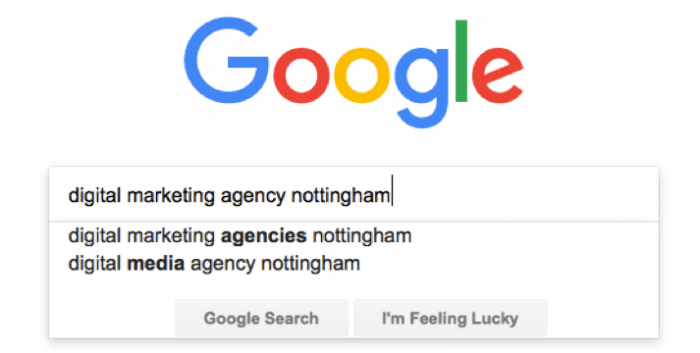The 5 key steps for hiring an agency that’s right for your business
As readers of Smart Insights will know all too well, digital marketing is a vast field with many different elements and nuances. From media planning and strategy, through to SEO, CRO, and UX, digital marketing is constantly evolving and keeping up with all the trends can be very time-consuming.
Many companies opt to bring marketing expertise in-house, which can be advantageous for keeping a grip on resourcing costs, maintaining control and building a strong team for the future. However, there are also pitfalls to this approach, mainly around the attraction of creative talent and the lack of an independent, outside perspective that agencies bring to a creative brief.
Having worked both agency and client-side throughout my career, I believe there are many benefits to working with an agency to partner on strategy, campaign planning, and capability building. However, the decision should not be taken lightly and before embarking on an agency selection process always ask yourself the following questions:
- How will you fund the agency? Whilst some of the answers to this question will depend on negotiations with the agencies themselves, know up front what type of fee structure would suit your business best
- Who will manage the agency? You should identify a core team and key contact responsible for managing the agency and a clear understanding of how the relationship will work across different teams and departments within the business
- What is the scope of work? Whilst this can evolve over time, it’s important to know from the outset the main areas of focus the agency will be responsible for supporting and over what period of time
Five steps to follow
Once you’ve decided to proceed with an external agency then the next steps in the process kick in. Some businesses may have a dedicated marketing service or procurement team to take primary responsibility for many of the following steps, however, whether this is the case for you or not it’s worth being aware of them and where you can influence the process.
1. Define your brief
From the outset, it’s essential that you have a really clear vision of how you intend to work with an agency and on what type of projects/ campaigns. The initial scope of work will help here, however, the brief will distill this further and include additional detail such as project timings, budget ranges and background information on the business, brand and products/ services.
2. Research: get to know the agency landscape
There are literally many hundreds of agencies of all shapes and sizes so it’s hugely worthwhile conducting some initial research based on the brief you’ve drafted. A simple Google search is always helpful as a starting point but make sure you’re as specific as possible so you can filter out the agencies that don’t fit your brief:

In addition to your own research, take advantage of your professional network and obtain recommendations and references from other business acquaintances. Cross-reference their suggestions with your own findings and then start to investigate further, refining your shortlist along the way and looking closely at each agency’s online presence.
At this stage be mindful of red flags/ warning signs:
- Lack of a clear track record
- Limited/ no authentic testimonials
- Poor digital presence
3. Shortlist and send out a request for information (RFI)
Once you have a solid feel for the agency landscape and the type of agencies that are likely to be the best fit, it’s time to define your shortlist. I would advise a shortlist of 3-5 agencies maximum as this will help keep you focused and also ensures you’re able to dedicate the right amount of time and energy to each of the agencies at the next stage of the process.
It might also be necessary to produce a formal request for information (RFI) at this stage before engaging any of the agencies on your shortlist. An RFI is a way of collecting information and intelligence about particular agencies before formally speaking with them about a proposal or agreement. Depending on your brief and the agencies involved this may not be required, although the process itself is a useful way of standardizing information so this is consistent for everyone. The DMA has produced a helpful RFI template that can be adapted based on your specific brief.
4. To pitch or not to pitch?
The next step is about formally engaging the agencies once you’re confident you have all the information you need and feel it’s worth having a more in-depth conversation to discuss your brief.
Depending on the campaigns and projects you have planned for the year, it may be necessary to run a pitch process to help decide on the agency you’d like to work with. A pitch process can be quite time-consuming for all parties and costly from an agency’s perspective so decide quickly whether this is something you feel you need to undertake. Some agencies may decide they do not want to enter into a pitch process so have a fall-back plan in case this happens with one or more of the candidates you’ve shortlisted.
5. Appoint and get started!
Once you’ve decided on the winning agency (and informed the other agencies with written feedback), it’s time to formally get started.
The initial steps will be to sit down and go through the statement of work and the brief in more detail, outlining exactly what the role and responsibilities of the agency will be. The devil is in the detail so ensure you cover the following areas during this discussion:
- Pricing and fee structure
- Contract terms
- Team set up
- Process
- Non-disclosure agreements
Conclusion
Recruiting an agency is very similar to hiring a new member of staff. It takes time, effort and a clear focus to find the right fit but the more you put into the process the better likelihood of finding a successful partner to work with.
The recruitment process will be different for everyone although I’ve tried to outline in this post the key steps that I believe every business should follow to ensure that the right level of due diligence has been followed. This will make the process fair for everyone involved and help set you up for success!








